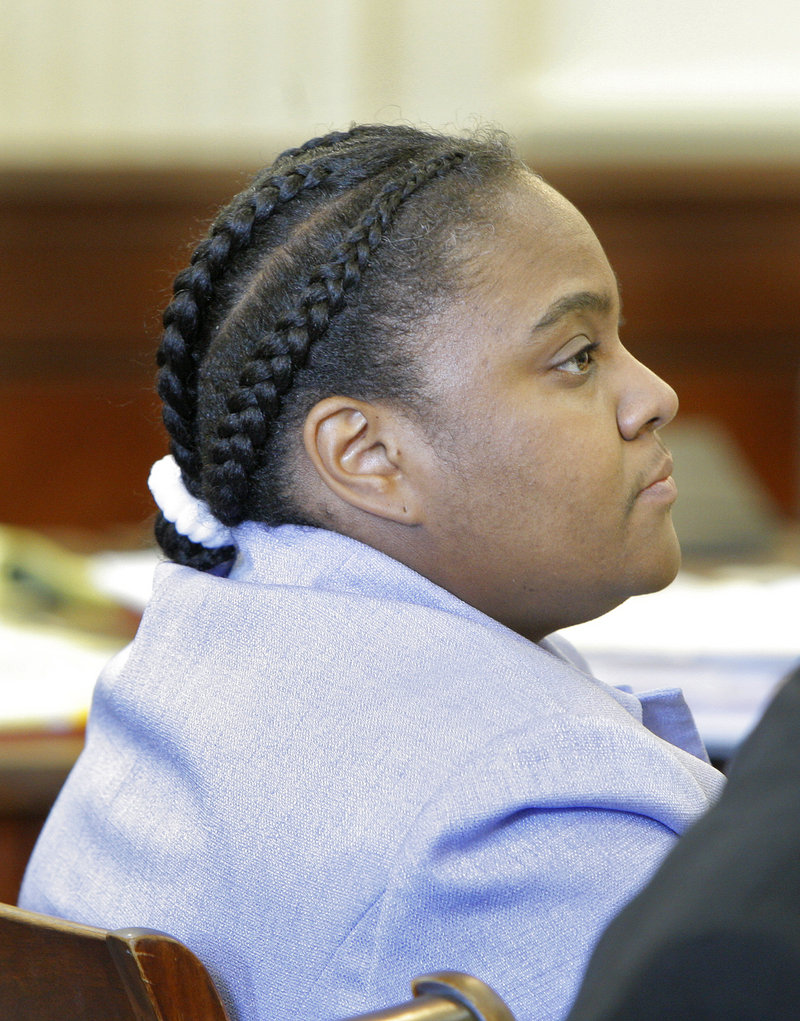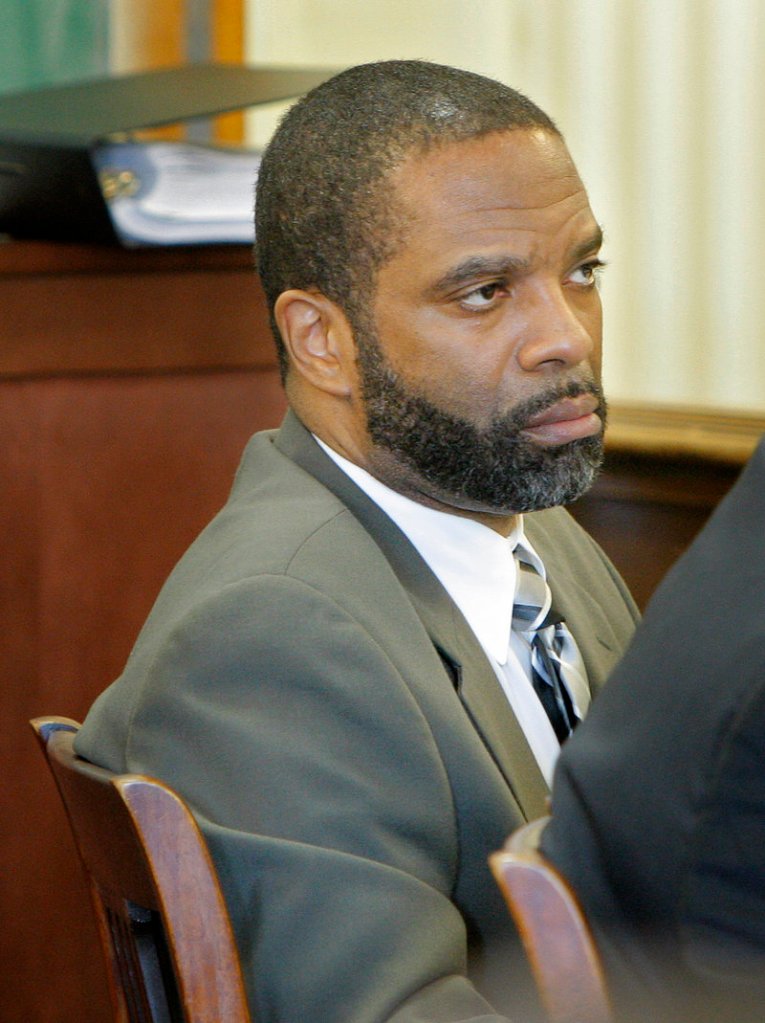ALFRED – After nine days of testimony, 50 witnesses and three vastly different accounts of what happened in the early morning of June 20, 2008, a jury must decide whether an Old Orchard Beach woman and her brother are guilty of murder.
Darlene George and Jeffrey Williams are accused of plotting and carrying out the killing of her husband, 44-year-old Winston George, and staging a home invasion to make it appear that the crime was committed by strangers.
The trial ended Thursday with testimony by Williams and closing statements by the lawyers in York County Superior Court.
Justice G. Arthur Brennan gave legal instructions to the jurors, who opted to begin deliberations at 9 a.m. today, rather than go into the deliberation room late Thursday afternoon.
Although George and Williams were tried together, the jury must return individual verdicts for them. Both are charged with murder and conspiracy to commit murder.
The verdicts could hinge on what jurors think of the testimony of the third defendant in the crime, Rennie Cassimy of Brooklyn, N.Y.
Cassimy, who said he was Darlene George’s lover from 1995 to the time of Winston George’s killing, reached a deal with prosecutors this year and pleaded guilty to conspiracy. The state agreed to recommend an eight-year prison sentence, partly in exchange for Cassimy’s testimony.
His testimony last week supported the central claim by the prosecution — that Darlene George wanted her husband dead because she didn’t want to lose any stake in the properties they owned if they divorced, and she was angry about Winston George’s affair with a co-worker.
Cassimy said Darlene George arranged for him and Williams to come to Maine from New York, stage a home invasion and kill Winston George.
“Hell hath no fury like a woman scorned, and Darlene George is no one to cross,” Assistant Attorney General Lisa Marchese said in her closing argument Thursday.
“This case is, pure and simple, about greed. She doesn’t want to lose her property and she doesn’t want anyone else having her husband,” Marchese said.
Darlene George called 911 at 5:45 a.m. on June 20, 2008. She said three men wearing latex gloves and nylon stockings over their heads had ambushed her and her 13-year-old son in their home at 56 Smithwheel Road.
George said the men tied them up and then attacked her husband when he returned home from work around 2:30 a.m.
Police found George’s body in the basement. He had been strangled with a rope and suffocated with a plastic bag. A rum bottle had been put in his mouth through a small hole in the plastic. Cassimy claimed that Williams was the one who attacked George, and that he was there to provide backup.
Darlene George opted not to testify in the trial, but jurors heard her version of what happened. They listened to a taped interview of George conducted by detectives, and to a read-back of George’s testimony to a grand jury in 2008.
George claimed that she didn’t know the men who ambushed her family. She said the men spoke in what sounded like fake Jamaican accents and repeatedly demanded drugs and money.
“My gut is telling me someone picked the wrong house and they caused me and my family a lot of grief,” George told detectives.
George said she didn’t know that Cassimy and Williams were in Maine.
Videotapes from the Concord Trailways depot in Portland showed the men arriving by bus around 4 p.m. on June 19, 2008, and departing around 8 the next morning. Williams was carrying a backpack that had been purchased, along with two masks, at a military supply shop in Scarborough on the afternoon of June 19.
Prosecutors introduced cell phone records that showed dozens of calls between Darlene George, Cassimy and Williams in the days leading up to the crime, including multiple calls around the time the bus arrived.
Williams took the stand in his own defense Thursday. He immediately contradicted his sister’s version of events by telling the jury that Darlene George did indeed meet him and Cassimy at the bus station.
Williams, who was living with a brother on Long Island in New York at the time, said his sister persuaded him to come to Maine for a visit on June 19. He had never been here. Cassimy already had plans to go to Old Orchard Beach, and he pressured Williams to join him, Williams testified.
Williams said he thought he would be staying overnight at the Georges’ house on Smithwheel Road, but Darlene George left him and Cassimy at a motel in Old Orchard Beach. “My sister stated she had some running around to do, and she would be back,” he said.
Williams said he was annoyed, but he didn’t want to call Darlene George because he didn’t want to get into an argument with her.
Williams said he and Cassimy went for dinner at the nearby Captain’s Galley restaurant and then returned to the motel. Around 9 p.m., Cassimy stepped out for a phone call, Williams said. Cassimy then told him that he was going out to visit a friend, and that Darlene George would see them in the morning.
Williams said he fell asleep and didn’t see Cassimy again until around 4 the next morning. Williams said he was so frustrated by the situation that he told Cassimy he was leaving on the earliest possible bus from Portland.
Joel Vincent, Williams’ attorney, suggested to the jury that Cassimy brought Williams to Maine because he had a past conviction for robbery and could be set up as a fall guy.
Vincent and Paul Aranson, Darlene George’s attorney, said Cassimy was willing to craft a convenient story for police to secure his plea deal.
In his closing argument, Vincent noted several discrepancies between Cassimy’s testimony and his earlier statements.
“You have to say to yourself, ‘Do I believe this guy,’ when he changes his story on the witness stand,” Vincent said. “You cannot rely on his testimony, and his testimony is all there is.”
Aranson challenged the prosecution’s theory about Darlene George’s motives. The couple had no equity in the two properties they owned in Old Orchard Beach or in a rental property they owned in Brooklyn, he said in his closing argument.
“There is no financial motive whatsoever in this case,” he said.
Aranson also said Darlene George wasn’t motivated by jealousy. She knew about Winston George’s ongoing affair, and he knew about her relationship with Cassimy, Aranson said.
Like Vincent, Aranson pointed to Cassimy as the man who was responsible for Winston George’s murder.
Cassimy wanted George to be gone so he and his two sons could move to Maine, away from the rough area where they lived in New York City, Aranson said. “I think he took it upon himself to come up and do this,” he said.
Marchese said the prosecution didn’t depend solely on Cassimy’s testimony, or the trial wouldn’t have lasted two weeks.
She described Cassimy as a credible witness who happens to be “lousy with dates and times.”
Marchese told jurors that whether they believed all of Cassimy’s testimony, some of it or none of it, the state had introduced more than enough evidence and other witnesses to prove its case against both George and Williams beyond a reasonable doubt.
“There is only one set of events that makes any sense here,” she said.
Staff Writer Trevor Maxwell can be contacted at 791-6451 or at:
tmaxwell@pressherald.com
Copy the Story Link
Send questions/comments to the editors.




Success. Please wait for the page to reload. If the page does not reload within 5 seconds, please refresh the page.
Enter your email and password to access comments.
Hi, to comment on stories you must . This profile is in addition to your subscription and website login.
Already have a commenting profile? .
Invalid username/password.
Please check your email to confirm and complete your registration.
Only subscribers are eligible to post comments. Please subscribe or login first for digital access. Here’s why.
Use the form below to reset your password. When you've submitted your account email, we will send an email with a reset code.